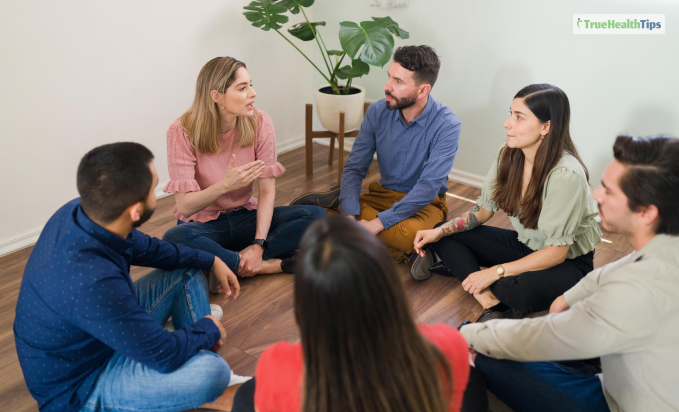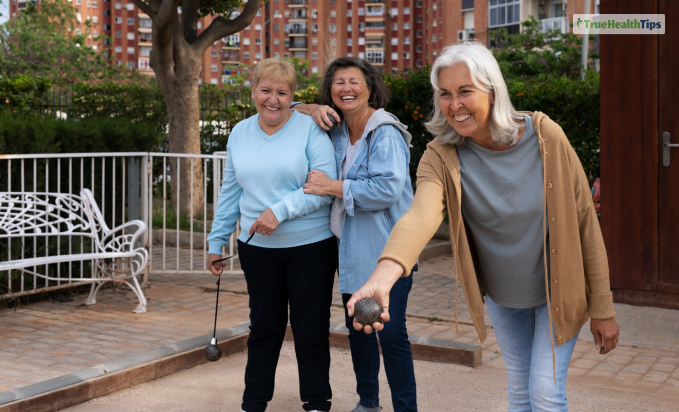
Maintaining mental health is a holistic endeavor that involves not only addressing challenges but also actively fostering well-being. Engaging in purposeful mental health activities, whether individually or within a group, can contribute significantly to emotional resilience, stress reduction, and overall psychological well-being. In this exploration, we delve into a variety of mental health activities tailored for groups and adults, emphasizing awareness, support, and personal growth.
This article is a dive into the ideas that can help you enjoy prioritization of your mental health. the following sections illustrate more than 15 ways you can build a schedule where you are enjoying a mental health day!
Why Are Mental Health Group Activities Necessary?
Mental health group activities are something that you can enjoy on your own or with a group of mental health enthusiasts. The following sections will dive deeper into the ways you can enjoy these activities and maybe curate a weekend plan where you are enjoying your mental health- be it as a self-care or a group activity!
Mental Health Group Activities

1. Expressive Arts Workshops:
– Engage in creative expression through art, music, or dance. These activities provide a non-verbal outlet for emotions, fostering self-discovery and group cohesion.
– Benefits: Enhances emotional expression, promotes relaxation, and encourages collaboration within the group.
2. Mindfulness Meditation Sessions:
– Guided mindfulness or meditation sessions can be conducted in a group setting. Participants focus on breath, sensations, or guided imagery to cultivate mindfulness.
– Benefits: Reduces stress, enhances self-awareness, and fosters a sense of calm and presence.
3. Peer Support Circles:
– Create a safe space for individuals to share their experiences and challenges. Peer support circles allow for empathetic listening and shared coping strategies.
– Benefits: Reduces feelings of isolation, fosters a sense of community, and provides mutual encouragement.
4. Team Building Exercises:
– Structured team-building activities enhance communication, trust, and collaboration. These exercises can be tailored to specific mental health goals.
– Benefits: Strengthens interpersonal relationships, promotes a positive group dynamic, and encourages a supportive environment.
5. Gratitude Journaling Workshop:
– Facilitate a workshop on gratitude journaling. Participants can reflect on and share moments of gratitude, fostering a positive mindset.
– Benefits: Encourages a focus on positive aspects of life, enhances resilience, and provides a tool for self-reflection.
Mental Health Awareness Activities

1. Guest Speaker Events:
– Invite mental health professionals or individuals with lived experiences to share insights and knowledge. This can be done in-person or virtually.
– Benefits: Raises awareness, reduces stigma, and provides valuable information on mental health topics.
2. Film Screenings and Discussions:
– Screen documentaries or films addressing mental health themes, followed by group discussions. This allows for reflection and exploration of different perspectives.
– Benefits: Increases awareness, encourages empathy, and provides a platform for open dialogue.
3. Mental Health Workshops:
– Organize workshops on various mental health topics, covering stress management, resilience building, or mindfulness practices.
– Benefits: Equips participants with practical tools, fosters a culture of learning, and promotes proactive mental health.
4. Community Awareness Campaigns:
– Launch awareness campaigns in the community, sharing information, resources, and destigmatizing mental health challenges.
– Benefits: Engages the broader community, normalizes mental health conversations, and provides access to information and support.
5. Interactive Webinars:
– Conduct webinars featuring experts discussing mental health topics. Include Q&A sessions to involve participants in the conversation.
– Benefits: Provides accessible information, promotes community engagement, and facilitates dialogue on mental health matters.
Mental Health Activities for Adults

1. Nature Walks and Outdoor Activities:
– Encourage outdoor activities such as nature walks, hiking, or gardening. Exposure to nature has proven benefits for mental well-being.
– Benefits: Reduces stress, enhances mood, and provides opportunities for physical activity.
2. Mind-Body Practices:
– Introduce mind-body practices like yoga or tai chi. These activities integrate movement, breath, and mindfulness.
– Benefits: Improves flexibility, reduces stress, and promotes mind-body connection.
3. Therapeutic Journaling:
– Encourage adults to engage in therapeutic journaling. This may involve reflective writing, gratitude journaling, or goal setting.
– Benefits: Enhances self-awareness, provides an emotional outlet, and supports goal-oriented thinking.
4. Book Clubs with Mental Health Themes:
– Form a book club focusing on literature that explores mental health themes. Discussions can revolve around characters’ experiences and insights.
– Benefits: Promotes reading as a coping mechanism, fosters empathy, and facilitates open conversations.
5. Cooking and Nutrition Classes:
– Offer cooking or nutrition classes emphasizing the connection between diet and mental health. Explore mood-boosting recipes and nutritional tips.
– Benefits: Encourages healthy eating habits, provides a practical skill, and highlights the importance of nutrition for mental well-being.
Mental Health Activities for Adults in Groups

1. Peer-Led Support Groups:
– Facilitate peer-led support groups where individuals with similar challenges can share experiences and coping strategies.
– Benefits: Builds a sense of community, fosters empathy, and provides a platform for shared learning.
2. Art and Craft Therapy Sessions:
– Incorporate art and craft activities into therapeutic sessions. This can include painting, sculpting, or other creative expressions.
– Benefits: Provides a non-verbal outlet for emotions, enhances creativity, and supports emotional processing.
3. Interactive Stress Reduction Workshops:
– Conduct workshops focusing on stress reduction techniques such as deep breathing, progressive muscle relaxation, or guided imagery.
– Benefits: Equips individuals with practical stress management tools, encourages relaxation, and promotes a supportive group environment.
4. Goal Setting and Accountability Groups:
– Establish groups centered around goal setting and mutual accountability. Participants can support each other in achieving personal and mental health-related goals.
– Benefits: Fosters a sense of achievement, promotes personal growth, and provides social support.
5. Laughter Yoga Sessions:
– Incorporate laughter yoga, a combination of laughter exercises and yogic deep-breathing techniques, into group sessions.
– Benefits: Enhances mood, reduces stress, and promotes a sense of joy and connection within the group.
Conclusion
Engaging in mental health activities, whether individually or as part of a group, is a proactive and empowering approach to overall well-being. These activities contribute not only to personal growth and self-awareness but also to the creation of supportive communities that prioritize mental health. From expressive art and mindfulness practices to community awareness campaigns and therapeutic groups, the spectrum of mental health activities is diverse and adaptable to various preferences and needs.
The key lies in promoting a culture where mental health is valued, discussed openly, and actively nurtured, creating a path toward a healthier and more resilient society.
Read Also:











